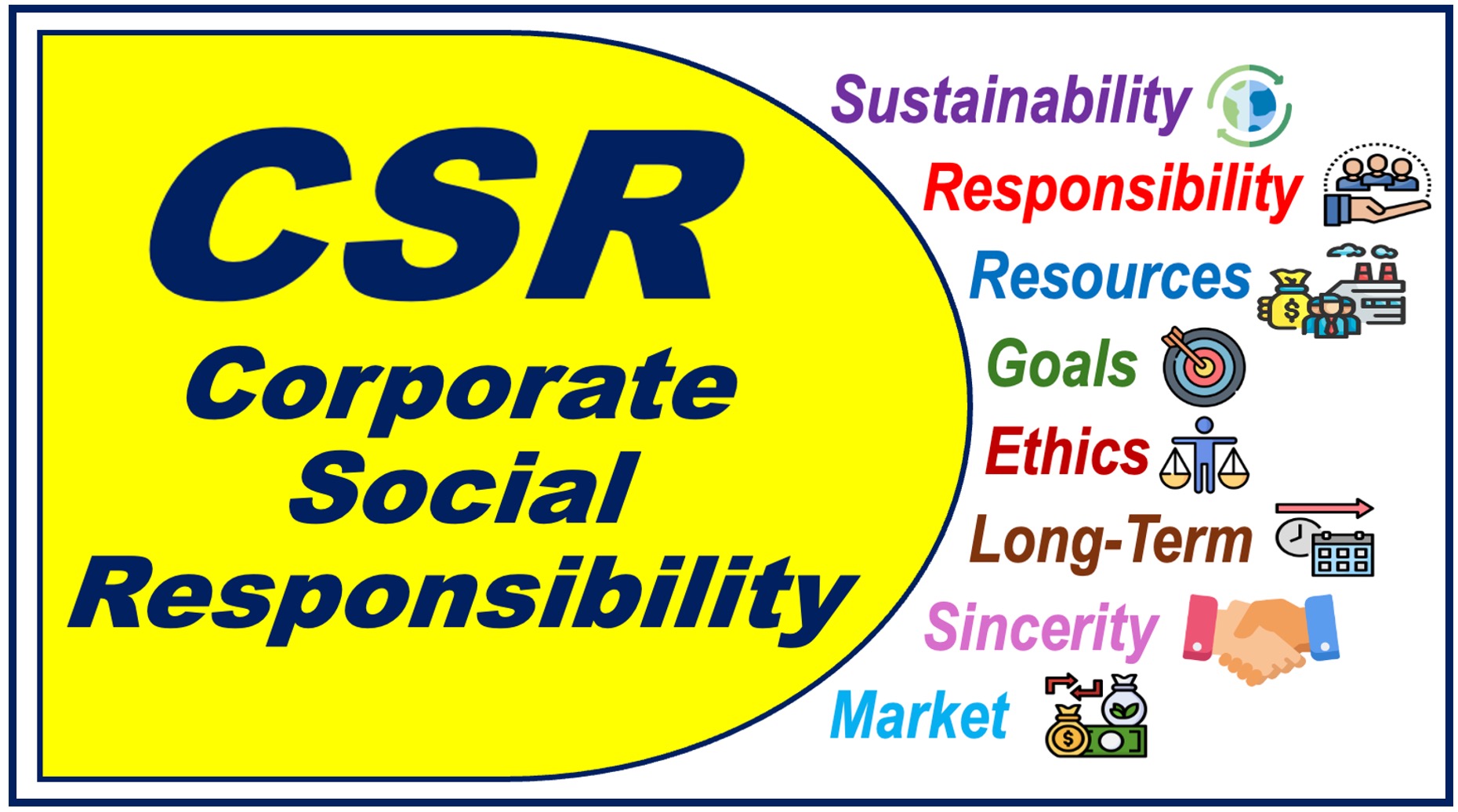Social Responsibility means that we all have a duty to act in ways that benefit society as a whole. “We all,” in this context, refers to individuals, businesses, and government.
When talking specifically about companies, we can use the term Corporate Social Responsibility (CSR). We live in a herd; what you do may affect other people and not just yourself. The same applies to businesses.
Your aim in business is to make a profit, but should also include making positive contributions to the world around you. CSR is about finding a balance between the two – profit and making a positive contribution.
IBM, an American multinational technology corporation, says the following about corporate social responsibility or CSR:
“Corporate social responsibility (CSR) is the idea that businesses should operate according to principles and policies that make a positive impact on society and the environment. Through CSR, companies make decisions driven by financial gain and profitability, and the impact of their actions on their communities and the world at large.”
The concept of social responsibility has existed for over one hundred years. Howard Bowen (1908-1989), an American economist, coined the term “Corporate Social Responsibility” in his 1953 publication “Social Responsibilities of the Businessman. Bowen is often referred to as the “father of modern CSR.”
Actions Have Consequences
The actions of individuals, companies, governments, and other entities have consequences. The choices we make can impact our communities, environment, and the well-being of others. By integrating ethical practices into our daily lives and business strategies, we ensure a positive footprint on the world around us.
When we prioritize social responsibility, we help build a more sustainable world. We also help create a fairer and healthier community. Moreover, our conscious decisions can inspire others to act, creating a ripple effect that magnifies the impact of our good deeds.
What Can Individuals Do?
We can all, as individuals, practice social responsibility in many ways:
-
Volunteering
Help out at a food bank or local shelter, mentor youth programs, participate in community clean-ups, assist at an elderly care facility, or organize workshops.
-
Ethical Shopping
Support businesses that have fair labor practices and care about the environment. For example, you could choose to purchase from a local farmers’ market that sources organic produce directly from nearby farms, ensuring that the growers receive a fair wage and use sustainable farming practices.
-
Conserving Resources
Reduce your water and energy use by fixing leaks, installing low-flow faucets and toilets, using energy-efficient appliances, and turning off lights and electronics when not in use. Consider purchasing a 100% electric or hybrid car, a high-mileage gas vehicle for greater fuel efficiency.
-
Respecting Others
Treat everyone you meet with dignity and kindness, offer help without expectation, and show empathy in your interactions, regardless of their background.
What Can Businesses Do?
Even though the main aims of businesses are to make profits and expand, they also have a special role in social responsibility.

Companies can make a big impact in the following ways:
Treating employees fairly, paying them a decent or living wage, providing safe working conditions, promoting diversity and inclusion, investing in professional development, and supporting work-life balance.
-
Environmental Focus
Using sustainable resources, minimizing waste, promoting biodiversity, improving energy efficiency, and reducing pollution.
-
Community Support
Donating to charities, supporting local causes, strengthening education, fostering local economic development, or giving employees time off for volunteering.
-
Transparent Operations
Being honest and open about how the company’s operations and finances, ensuring accountability in all levels of the organization, and actively engaging with stakeholders. Stakeholders are individuals or groups that have an interest in the decisions and activities of a company.
Challenges of Social Responsibility
-
Companies
For a business, acting in a sociably responsible way may sometimes mean making less profit in the short term. For example, a company may incur additional costs by sourcing materials from fair-trade suppliers, or by investing in more expensive energy-efficient technologies that have a higher initial cost.
-
Individuals
As individuals, we may have to make changes in our lifestyles, such as reducing personal consumption and altering our transportation habits to support sustainable practices.
Finding the right balance is an ongoing process.
Social Responsibility – A Shared Goal
The concept of social responsibility can seem big, but it actually boils down to making choices that benefit us all.
If we all make small contributions, they can amount to significant collective progress, demonstrating how many modest acts can culminate in substantial positive change.
When enough of us make these choices, we create real change.
